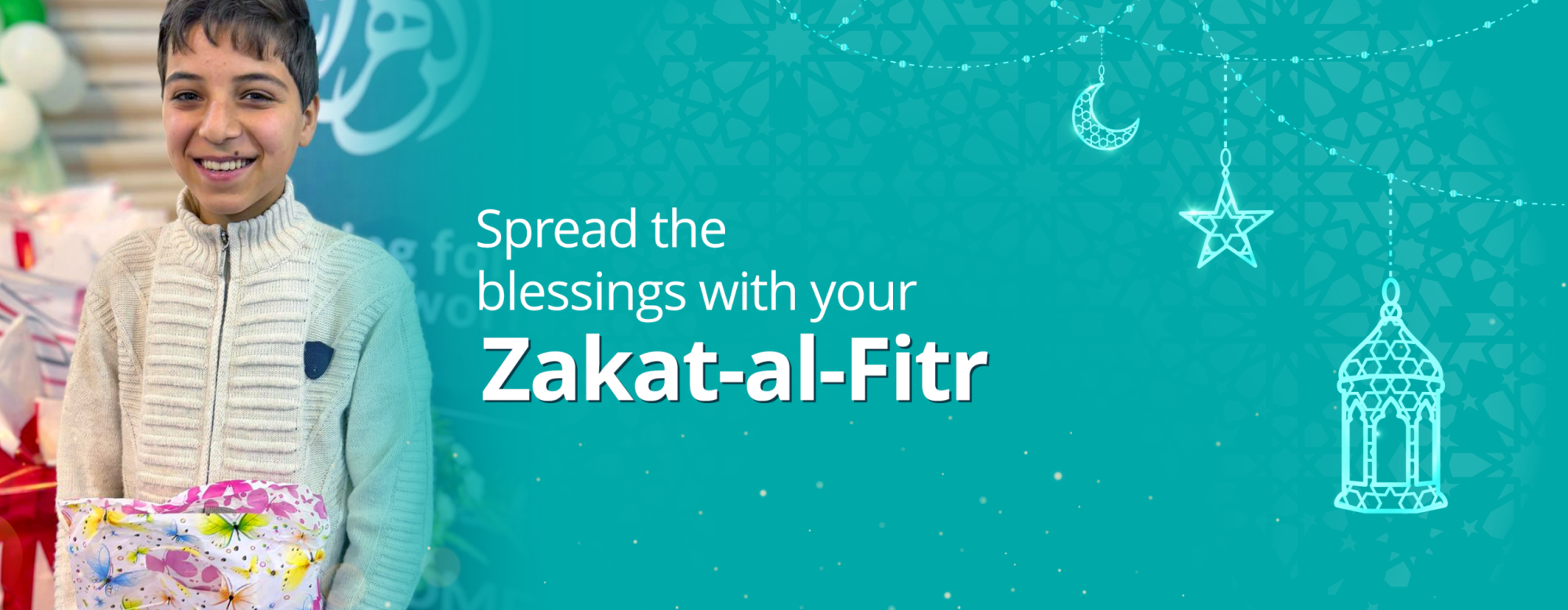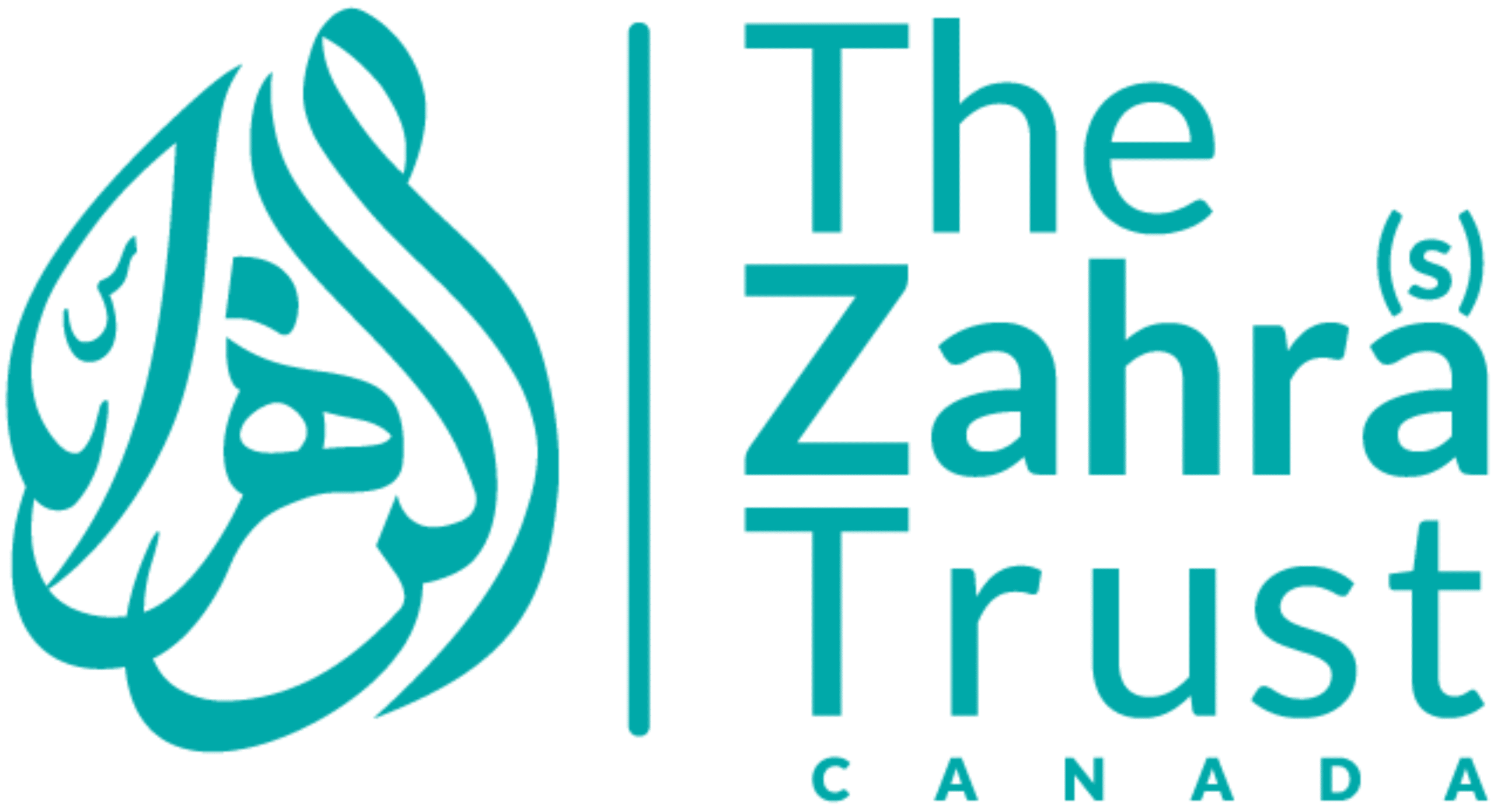
Zakat al-Fitr is a vital act of worship fulfilled by Muslim at the end of Ramadan, ensuring those in need can experience the joy of Eid too.
This small but powerful act is a direct way to provide a meal for those less fortunate, allowing families to celebrate with dignity and joy. It is an obligation that transforms lives, offering hope and restoring a sense of community during this blessed time.
Give your Zakat al-Fitr today and fulfill your duty while making Eid brighter for those who need it most.
Real Impact: How Zakat al-Fitr Brings Hope
Meet Ali, a 4-year-old orphan in Najaf, Iraq. After losing his father and being abandoned by his mother, he was left in the care of his elderly grandmother — both struggling with food insecurity and uncertainty.
Thanks to generous donors, Ali received a Shahr Ramadan food parcel and emotional support. He was also enrolled in nursery school, where his personality flourished. Once withdrawn and angry, Ali is now thriving — filled with joy and a sense of belonging.
“I would like to thank The Zahra Trust. May Allah reward them a thousand times. I pray for them and appreciate them for giving a good education to my little boy, Ali!” said Ali’s grandmother.
This is the power of food aid programs like Zakat al-Fitr. It’s more than a meal — it’s a lifeline that restores dignity and brings peace to families during the most blessed time of year.
Frequently Asked Questions (FAQs) about Zakat al-Fitr
Zakat al-Fitr (Fitrana) is a mandatory charitable payment due at the end of Shahr Ramadan. It purifies your fast and allows those in need to celebrate Eid with dignity. Unlike regular Zakat, it is required from all eligible Muslims.
Every Muslim who has sufficient sustenance for themselves and their dependents on the night before Eid must pay Zakat al-Fitr — including on behalf of children or anyone under their care.
It should be paid once Maghrib sets in on the 1st of Shawwal (Eid al-Fitr night) and before the Eid prayer. If you are not performing the Eid prayer, it should be paid before Dhuhr time. You may set it aside or distribute it a few days in advance.
If you are giving it in advance, your intention (niyyat) must be of giving a loan, and then change your intention to Zakat al-Fitr once Eid al-Fitr night sets in.
The value is equivalent to 3kg of staple food per person, typically around $10 per person in Canada. For example, a household of 4 would give $40.
Yes, you can give the monetary equivalent through trusted organizations that distribute food or essentials on your behalf. This is permissible and often more efficient.
Absolutely. Giving online ensures your donation is safe and timely. You can fulfil your Zakat al-Fitr here.
Zakat al-Fitr should go to needy Shia Muslims, as per rulings from scholars like Ayatollah Sayed Ali al-Sistani (ha). It must not be given to one’s dependents.
Yes. Sayeds (descendants of the Prophet) may only receive Zakat al-Fitr from Sayeds, therefore Sayeds should give Zakat to other Sayeds. Distributing through a knowledgeable charity ensures proper allocation.
While regular Zakat is paid annually at any time, Zakat al-Fitr is specifically only pad at the end of Shahr Ramadan. The amount of Zakat al-Fitr is fixed and equivalent to 3 kg of food value, the amount of regular Zakat is variable and equivalent to 2.5% of the individual’s qualifying wealth. Zakat al-Fitr is obligatory for all Muslims who meet the basic sustenance criteria, whereas regular Zakat applies only to those who possess qualifying items. The purpose of Zakat al-Fitr is to purify the fast and support those in need during Eid, while regular Zakat serves as a broader tool for wealth purification and long-term support.
If not paid before Eid prayer (or Dhuhr time if you are not performing Eid prayer), it must still be paid as soon as possible with the intention of qurbat and not the intention of being paid on time (adāʾ) or belatedly (qadhāʾ).
Make Your Zakat al-Fitr Count
This Eid, help someone smile. Your Zakat al-Fitr can bring joy, peace, and dignity to a family in need.
